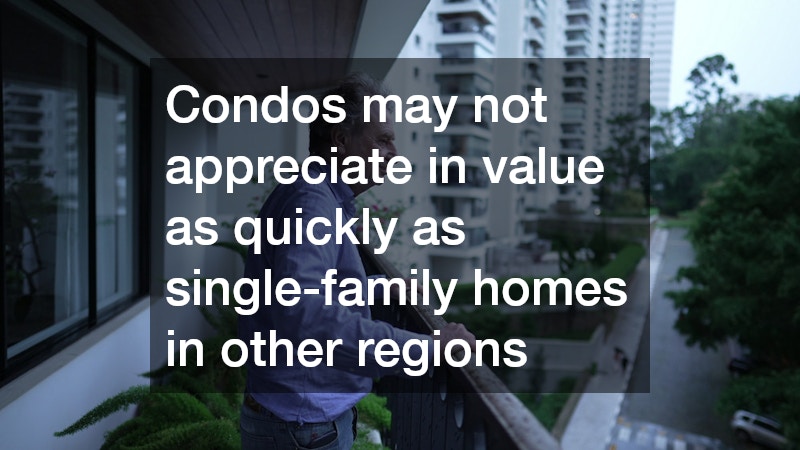Retirement marks the start of a new chapter in life—one where convenience, comfort, and lifestyle often take priority over square footage and yard work. For many retirees, condos have become a popular housing choice. They promise a simpler lifestyle, access to amenities, and a sense of community. But, like any major purchase, they come with both advantages and drawbacks.
If you’re thinking about making the move, let’s break down the pros and cons of buying a condo for retirement living so you can decide whether it’s the right fit for your golden years.
Why Condos Appeal to Retirees
Before diving into the pros and cons, it’s worth understanding why condos are such an attractive option for retirement living. Many retirees want:
- Low-maintenance living – No more mowing lawns or shoveling snow.
- Walkable locations – Many condos are near shops, restaurants, and medical facilities.
- Community atmosphere – Built-in opportunities to socialize with neighbors.
- Amenities – Pools, gyms, and clubhouses without the upkeep.
These benefits can be a big draw, but the full picture isn’t always rosy. Let’s weigh both sides.
The Pros of Buying a Condo for Retirement Living

1. Low Maintenance = More Free Time
One of the biggest perks is leaving behind the never-ending list of home maintenance chores. Most condos have a homeowners association (HOA) that handles:
- Landscaping
- Exterior repairs
- Snow removal
- Roof maintenance
This means you can focus on enjoying retirement instead of worrying about replacing gutters or mowing the lawn.
2. Built-In Amenities You Can Enjoy Daily
Condos often come with shared amenities like:
- Swimming pools
- Fitness centers
- Game rooms or clubhouses
- Tennis courts
- Walking paths
For retirees who want an active lifestyle, these amenities can provide daily opportunities to stay fit, meet neighbors, and have fun—without paying separate gym memberships or dealing with upkeep.
3. Security and Peace of Mind
Many retirees value the security features condos often provide. Gated entrances, security cameras, and on-site staff can make you feel safer—especially if you plan to travel. You can lock your door and leave for weeks or months without worrying about your home’s exterior.
4. Downsizing Without Feeling Cramped
Condos can be the perfect middle ground between a large home and a small apartment. You’ll likely have less space to clean but still enjoy enough room for guests, hobbies, and comfort.
5. Sense of Community
Living close to neighbors and sharing common spaces often fosters friendships. Many condo communities even organize social events, from game nights to holiday parties, which can be a great way to stay socially active in retirement.
The Cons of Buying a Condo for Retirement Living

1. HOA Fees Can Add Up
While it’s great that the HOA handles maintenance, you’ll pay for it through monthly fees. These fees can range from modest to hefty, depending on the amenities and location. And they can increase over time.
2. HOA Rules May Limit Your Freedom
HOAs often have rules about:
- Renovations or paint colors
- Pet ownership
- Renting out your unit
- Parking
If you like full control over your property, these rules might feel restrictive.
3. Shared Walls and Noise
Depending on the building’s construction, you might hear your neighbors more than you’d like. For some retirees seeking peace and quiet, this could be a downside.
4. Potential Special Assessments
If the HOA doesn’t have enough funds for major repairs—like a roof replacement or elevator upgrade—owners may be charged a one-time “special assessment” fee, which can be thousands of dollars.
5. Resale Can Be Tricky in Some Markets
You may be wondering, “Are condos a good investment?” The answer depends heavily on location and market trends. While condos can perform well in high-demand areas, they may not appreciate in value as quickly as single-family homes in other regions. If you think you might sell in the future, research historical pricing, local demand, and resale timelines for condos in your desired area.
Questions to Ask Before Buying a Condo for Retirement Living
Before signing any paperwork, ask yourself (and your realtor) these important questions:
- What are the monthly HOA fees, and what do they cover?
- Are there any planned special assessments?
- What’s the condo association’s financial health?
- What are the community rules and restrictions?
- How active is the social scene, and does it match your lifestyle?
- What’s the neighborhood like in terms of walkability and access to healthcare?
How to Decide if a Retirement Condo Is Right for You
When weighing the pros and cons of buying a condo for retirement living, think beyond the physical space. Your decision should reflect your lifestyle, finances, and long-term goals.
- If you value convenience and community, a condo could be a perfect fit.
- If you prefer privacy and independence, you may want to explore other housing options.
- If you plan to travel often, the lock-and-leave lifestyle might be ideal.
- If you’re on a fixed budget, factor in HOA fees and potential assessments before committing.
Tips for Finding the Right Retirement Condo
- Visit at different times of day – Get a feel for noise levels, traffic, and activity.
- Talk to current residents – They can offer honest insights about the community.
- Review HOA meeting minutes – These reveal any ongoing issues or upcoming projects.
- Check accessibility features – Elevators, wide doorways, and step-free entrances are important for aging in place.
- Think about resale value – Choose a location and features that appeal to a wide range of buyers.
Final Thoughts on the Pros and Cons of Buying a Condo for Retirement Living
A condo can offer a maintenance-free lifestyle, community connections, and amenities that make retirement more enjoyable. But it’s not without trade-offs—HOA fees, rules, and potential resale challenges should be carefully considered.
If you take the time to research the community, understand the financial responsibilities, and ensure it aligns with your vision of retirement, a condo can be a smart and satisfying choice for your next chapter.
